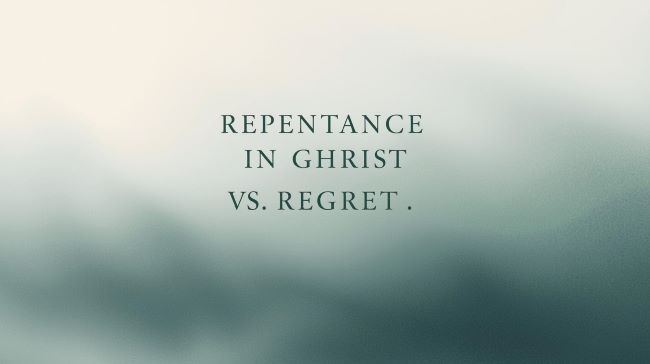

Welcome to a journey of daily reflections on repentance, a path that leads to profound peace and purpose. Through this process, we focus on key aspects, including:
By focusing on these elements, we can deepen our connection with ourselves and with God. This is a call to repentance and transformation.
Understanding repentance is crucial. The concept is central to many faiths and involves several key elements:
We all need to repent at some point.
The meaning of repentance extends beyond simple regret; it embodies a profound shift in perspective and behavior. True repentance involves a sincere change of heart and mind, compelling us to turn from sin and seek forgiveness. This transformation enables us to return to God and align our lives with His divine purpose. Repentance and acceptance of God's plan go hand in hand.
Daily reflections on repentance are essential for fostering continuous spiritual growth. Incorporating Catholic daily reflections into our routine allows us to regularly assess our actions, identify areas for improvement, and strengthen our commitment to turn away from sin. These daily reflections serve as a constant reminder of our journey back to God.
Repentance leads to peace by resolving the inner conflict caused by sin. When we sincerely repent and seek forgiveness, we experience a profound sense of relief and reconciliation. This process restores our relationship with God, bringing us closer to His love and grace. Finding peace is an integral part of embracing repentance and turning our lives around.
The journey of repentance is a transformative process, characterized by self-awareness, humility, and a relentless pursuit of holiness. It is a path that requires courage and commitment, as we confront our imperfections and strive to align our lives with divine principles. Embracing this journey is a testament to our desire for a deeper connection with God.
Embracing the journey of repentance involves acknowledging our imperfections and committing to a continuous process of self-improvement. It requires us to confront our past mistakes, learn from them, and take steps to turn away from sin. This proactive approach allows us to move forward with a renewed sense of purpose and a stronger connection with God.
Personal stories of change serve as powerful reminders of repentance's transformative potential. These narratives illustrate how individuals have overcome adversity, turned away from sin, and embraced a life of purpose and fulfillment. They inspire us to believe in our own capacity for change and to persevere on our journey back to God.
Repentance is not a one-time event but a continuous process of self-reflection and refinement. It requires us to constantly evaluate our actions, seek forgiveness for our shortcomings, and strive to live a life more pleasing to God. This ongoing commitment to growth and improvement deepens our relationship with God.
In conclusion, the practice of daily reflections on repentance fosters personal growth, strengthens our relationship with God, and guides us towards a life of peace and purpose. By understanding the true meaning of repentance, embracing its transformative journey, and engaging in daily self-assessment, we can turn away from sin.
In the heart of repentance lies the act of seeking forgiveness from God. This involves acknowledging our sins, expressing remorse, and asking for divine pardon. Seeking forgiveness is not merely a ritual but a sincere plea for reconciliation with the divine, opening the path to healing and spiritual renewal. We all need to repent and seek forgiveness.
Forgiveness is a multifaceted concept that extends beyond seeking pardon from God; it also encompasses forgiving others and ourselves. Just as we seek divine forgiveness, we are called to extend forgiveness to those who have wronged us. Furthermore, we must learn to forgive ourselves for our past mistakes, releasing the burden of guilt and shame that hinders our spiritual growth. Embrace repentance.
Forgiveness plays a pivotal role in finding peace within ourselves and in our relationships with others. By releasing the resentment and anger associated with past hurts, we create space for healing and reconciliation. Forgiveness allows us to break free from the chains of bitterness and move forward with a sense of peace and liberation, strengthening our relationship with God.
Creating a daily reflection routine is a practical way to cultivate self-awareness and foster spiritual growth. This routine may involve setting aside a specific time each day to consider our actions, thoughts, and motivations prayerfully. By incorporating daily reflections on repentance into our lives, we can identify areas for improvement and strengthen our commitment to turning away from sin.
Journaling serves as a valuable tool for reflection, providing a space to record our thoughts, emotions, and insights. Writing about our experiences helps us process them more deeply and identify patterns and recurring themes. Through journaling, we can gain a clearer understanding of ourselves and our relationship with God, further enriching our journey of repentance and acceptance.
Prayer and meditation are essential components of daily reflections, providing opportunities to connect with God and cultivate inner peace. Specifically, these practices offer avenues for:
These actions ultimately promote clarity and direction on our spiritual journey.
In conclusion, the consistent practice of daily reflections on repentance is a journey towards finding true peace and purpose in each moment. By understanding the profound meaning of repentance, embracing its transformative power, and engaging in daily self-assessment, we can actively turn from sin, foster a deeper relationship with God, and cultivate a life filled with forgiveness and spiritual fulfillment. This call to repentance and daily reflections will help us find peace.
The connection between repentance and peace is deeply intertwined. True repentance involves a sincere change of heart and mind, leading us to turn away from sin and seek forgiveness. As we turn away from sin and embrace repentance, we experience a profound sense of relief and reconciliation, enabling us to find peace within ourselves and to strengthen our relationship with God.
Living with purpose after repentance involves aligning our actions with our values and seeking to make a positive impact on the world around us. Having repented from past transgressions, we are better equipped to live a life of holiness. Through daily reflections on repentance, we continually refine our character and pursue a life that honors God and serves others.
Incorporating lessons learned into daily life is essential for personal growth and transformation after repentance. Through daily reflections, we identify patterns and tendencies that lead us to sin. By consciously applying these lessons, we turn from sin, making amends where necessary, and live a life that reflects our commitment to repentance. As we change our lives and routines, we truly embrace repentance.
The journey of repentance is a transformative process that requires a sincere change of heart and mind, urging us to turn away from sin and turn back to God. It's not a one-time event but a continuous practice. Through daily reflections on repentance, seeking forgiveness, and embracing a life of holiness, we can find peace and purpose in each moment, coming closer to the Kingdom of God.
Continued reflection is crucial for maintaining spiritual growth and preventing relapse into old patterns of sin. By making daily reflections a habit, we remain vigilant, aware of our shortcomings, and committed to living a life that honors God. Embrace repentance as a lifelong journey, knowing that each moment presents an opportunity to grow closer to God.
Finding peace through repentance is a journey of self-discovery, forgiveness, and reconciliation with God. By acknowledging our sins, seeking forgiveness, and making a sincere effort to turn away from sin, we open ourselves to divine grace and inner peace. Embrace the call to repentance, and daily reflect on life, which will guide us toward a life of purpose, fulfillment, and eternal salvation. We need to repent to find the ultimate peace.